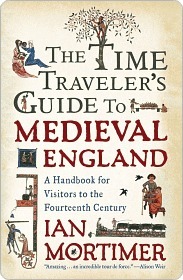More on this book
Community
Kindle Notes & Highlights
by
Ian Mortimer
W H. Auden once suggested that to understand your own country you need to have lived in at least two others. One can say something similar for periods of time: to understand your own century you need to have come to terms with at least two others.
Practicalities take precedence over beauty and thus become ideals, or things of beauty, in themselves.
When you consider that societies with youthful populations are more violent, tend to be supportive of slavery, and see nothing wrong in holding brutal combats in which men fight to the death for the sake of entertainment, you realize that society has changed fundamentally.
When people declare that “children have to grow up so quickly these days,” they should pause and reflect on this fact. Medieval boys are expected to work from the age of seven and can be hanged for theft at the same age. They can marry at the age of fourteen and are liable to serve in an army from the age of fifteen.
Medieval society thinks of itself like this: there are three sections of society, or “estates,” created by God—those who fight, those who pray, and those who work the land.
Chaucer’s own view is unequivocal: “What is better than wisdom? Woman. And what is better than a good woman? Nothing.”


